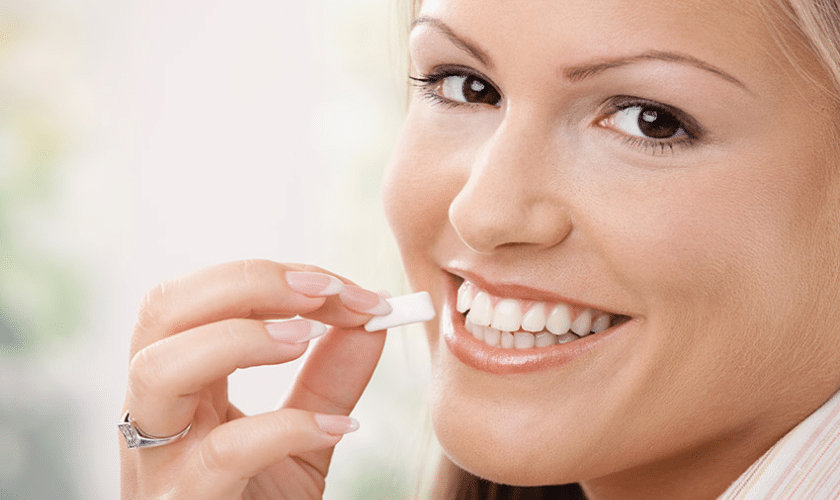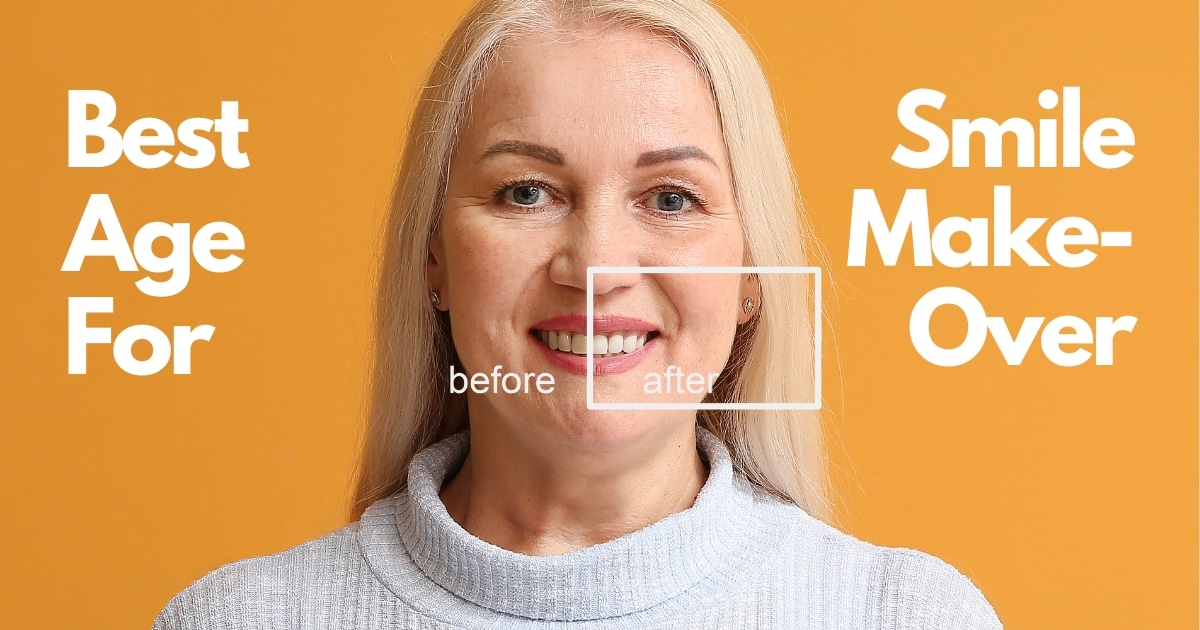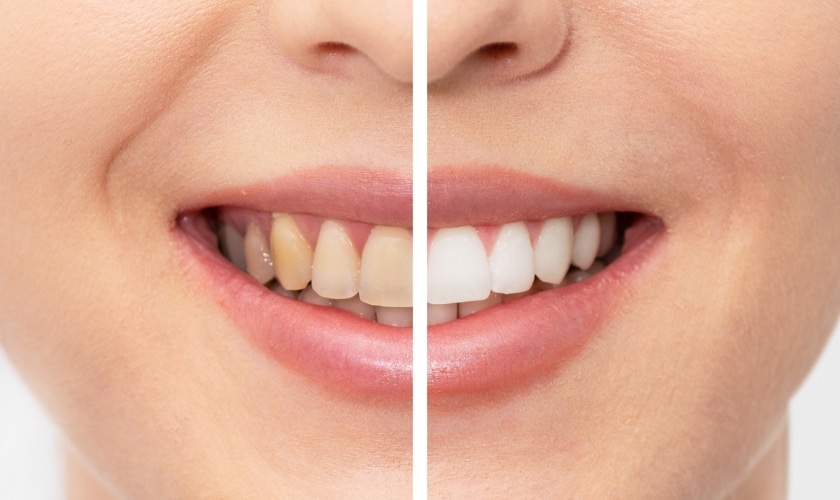4801 Southern Hills Dr, Sioux City, IA 51106, USA

Chewing gum. It’s a familiar habit, a breath freshener, and sometimes even a focus booster. But when it comes to oral health, is chewing gum a helpful tool or a sugary villain? Like most things in life, the answer is a little more complex.
In this blog, we’ll delve into the world of chewing gum and its impact on your oral health. We’ll go over the advantages of sugar-free gum, the disadvantages of sugar-filled gum, and how to include chewing gum in a good dental hygiene regimen.
The Power of Saliva: Chewing Gum’s Secret Weapon
Our mouths are teeming with activity. Bacteria constantly battle it out, and saliva plays a crucial role in keeping this battlefield balanced. Saliva washes away food particles, neutralizes acids produced by bacteria, and even helps remineralize tooth enamel.
Here’s where chewing gum comes in. The act of chewing stimulates saliva production. This increased saliva flow offers several benefits for oral health:
Enhanced Cleansing:
The extra saliva acts like a natural mouthwash, washing away food particles and bacteria that can contribute to plaque buildup and cavities.
Neutralizing Acids:
Bacteria love sugar and release acids as they feed on it. These acids can erode tooth enamel, leading to cavities. The increased saliva from chewing gum helps neutralize this acid attack, protecting your teeth.
Remineralization Boost:
Saliva contains minerals like calcium and phosphate, which help strengthen tooth enamel. Chewing gum can increase the flow of these minerals, aiding in the natural repair of minor enamel damage.
- Important Note: While chewing gum can increase saliva flow, it’s not a substitute for brushing and flossing. Brushing twice a day and flossing once a day are essential for removing plaque and bacteria from areas that gum can’t reach.
Sugar-Free vs. Sugary Gum: Choosing the Right Side
Now, let’s talk about the key factor that determines whether chewing gum is a friend or foe to your oral health: sugar.
Sugar-Free Gum: The Champion for Oral Health
Sugar-free gum with the American Dental Association (ADA) seal is the clear winner. Look for gums sweetened with xylitol, a sugar alcohol that has been shown to have additional benefits for oral hygiene. Studies suggest that xylitol can starve harmful bacteria and even promote the growth of good bacteria in your mouth.
Sugary Gum: A Cavity Causing Culprit
Sugary gum is a recipe for trouble. The sugar feeds the bacteria in your mouth, leading to increased plaque production and a higher risk of cavities. So ditch the sugary varieties and stick with sugar-free options.
Chewing Gum Beyond Oral Health: Additional Benefits
The benefits of chewing gum may extend beyond your mouth. According to certain research, chewing gum can:
Improve Alertness:
Chewing gum might enhance alertness and focus.
Reduce Stress:
The rhythmic chewing motion may have a calming effect and help reduce stress levels.
Boost Memory:
Research suggests a potential link between chewing gum and improved short-term memory.
- Remember: These are potential benefits, and more research is needed to confirm their effectiveness.
Making Chewing Gum Work for You: Tips for Responsible Chewing
If you enjoy chewing gum, here are some tips to maximize its benefits and minimize any potential drawbacks:
Choose Sugar-Free Gum:
Always opt for sugar-free gum with the ADA seal. Look for xylitol as a sweetener.
Limit Chewing Time:
Chewing for 20 minutes after meals is a good guideline. Excessive chewing can strain your jaw muscles.
Don’t Replace Brushing and Flossing:
Chewing gum is a helpful addition to your oral care routine, but it shouldn’t replace brushing and flossing.
Be Mindful of Jaw Issues:
If you experience jaw pain or temporomandibular joint (TMJ) problems, consult your dentist before chewing gum regularly.
Finding a Dentist
Keeping your teeth healthy requires routine dental exams. If you’re looking for a dentist in Sioux City, Iowa, to discuss your oral care routine and any questions you have about chewing gum, a quick web search can assist you in locating competent experts in your region.
Chewing Gum – A Sensible Addition to Your Oral Care Routine
Chewing sugar-free gum can be a beneficial addition to your oral care routine. It increases saliva flow, which helps cleanse your mouth, neutralize acids, and potentially aid in remineralization. However, it’s important to remember that chewing gum is not a replacement for brushing and flossing.
Chewing Gum: Frequently Asked Questions (FAQs)
Q: Can certain ingredients in gum be harmful?
While uncommon, some individuals may have sensitivities to specific ingredients in gum, such as artificial sweeteners or flavorings. If you experience any discomfort like mouth irritation after chewing gum, pay attention to the ingredients and consult your dentist if necessary.
Q: Is flavored gum better than mint gum?
There’s no significant difference between flavored and mint gum in terms of oral health benefits, as long as they are sugar-free. Choose the flavor you enjoy most to encourage responsible chewing.
Q: Does aspartame in sugar-free gum cause health problems?
Aspartame is a common sugar substitute in sugar-free gum. Extensive research has been conducted on its safety, and major health organizations like the FDA consider it safe for consumption in moderate amounts.
Q: What are some alternatives to sugar-free gum for freshening breath?
If you’re not a fan of chewing gum, other options exist for maintaining fresh breath. Here are a few suggestions:
- Brushing and flossing regularly: This removes food particles and bacteria that contribute to bad breath.
- Drinking plenty of water: Staying hydrated helps keep your mouth moist and reduces bad breath caused by dryness.
- Eating fruits and vegetables: Certain fruits and vegetables, like apples and celery, can help cleanse your mouth and freshen breath.
- Using a sugar-free mouthwash: Look for a mouthwash that contains ingredients like xylitol for additional oral health benefits.
Chewing Gum and Oral Health: A Final Thought
Chewing gum can be a convenient and enjoyable way to support your oral hygiene, particularly when done responsibly. By choosing sugar-free varieties, limiting chewing time, and maintaining a proper brushing and flossing routine, you can leverage the benefits of chewing gum for a healthy and happy smile.
Now, go forth and chew thoughtfully! But remember, a trip to the dentist in Sioux City for regular checkups and cleanings is still essential for optimal oral health.




